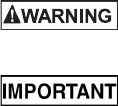
• 8 •
Connect the battery following the precautions listed in Sections 6 and 7.3.
Connect the AC power following the precautions listed in Section 8.4.
Select the desired charge rate. NOTE: The 40 amp Manual rate is a manual mode 5.
and will overcharge a battery if permitted to operate for extended periods of time.
Monitor the charging process often.
Turn the timer to HOLD or the selected charge time if using the 40 amp Manual Mode.6.
To disconnect the charger, reverse the procedure.7.
NOTE: This charger is equipped with a safe start feature. In the Automatic 4, 20 and 70
amp charge rates it will not supply current to the battery clips until a battery is properly
connected. Unlike traditional chargers, the clips will not spark if touched together. In the
Manual 40 amp charge rate, the clips will spark if accidently touched together.
Automatic Charging Mode
When an Automatic Charge is performed, the charger switches to the Maintain Mode
(see below) automatically after the battery is charged. For a battery with a starting
voltage under 1 volt, use the Manual Mode (see Manual Charging section) rst to
pre-charge the battery for ve minutes to get additional voltage into the battery for the
charger to analyze.
Manual Charging Mode
When you select the 40 Amp Manual Mode charge rate, you will be charging in manual
mode. You must set the timer to the proper time (see Timer section). Be sure to monitor
the charging procedure and stop it when the battery is charged. Not doing so may cause
damage to your battery or result in other property damage or personal injury.
Aborted Charge
If charging can not be completed normally, charging will abort. When charging aborts,
the charger’s output is shut off. To reset after an aborted charge, either disconnect the
battery or unplug the charger.
Desulfation Mode
If the battery is left discharged for an extended period of time, it could become sulfated
and not accept a normal charge. If the charger detects a sulfated battery, the charger
will switch to a special mode of operation designed for such batteries. If successful,
normal charging will resume after the battery is desulfated. Desulfation could take 8 to
10 hours. If desulfation fails, charging will abort (see Aborted Charge section).
Completion of Charge
Charge completion is indicated by the CHARGED (green) LED. When lit, the charger
has switched to the Maintain Mode of operation.
Maintain Mode (Float-Mode Monitoring)
When the CHARGED (green) LED is lit, the charger has started Maintain Mode. In this
mode, the charger keeps the battery fully charged by delivering a small current when
necessary. If the battery voltage drops below a preset level, the charger will go back into
Charge Mode until the battery voltage returns to the full charge level, at which point the
charger will return to Maintain Mode.
NOTE: The charger automatically switches between Charge Mode and Maintain Mode
as necessary. The CHARGED (green) LED will cycle on when the battery is at full
charge and off when the voltage drops below a preset level and the charger goes into
Charge Mode. This cycle will continue, and the CHARGED (green) LED will stay on for
longer periods of time as the battery becomes more fully charged.
Using the Engine Start feature
Your battery charger can be used to jumpstart your car if the battery is low. Follow these
instructions on how to use the ENGINE START feature.
Follow all safety instructions and precautions for charging your battery.
Wear complete eye protection and clothing protection. Charge your battery in a well-
ventilated area.
Using the ENGINE START feature WITHOUT a battery installed in the
vehicle could cause damage to the vehicle’s electrical system. NOTE: If you have
charged the battery and it still will not start your car, do not use the engine start feature,
or it could damage the vehicle’s electrical system.


















